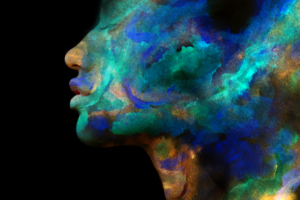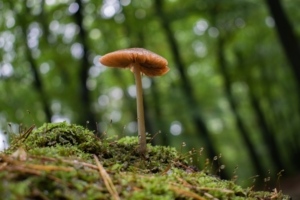
The University of Ottawa is now offering Canada’s first microprogram in Psychedelics and Spirituality Studies with the goal of building its syllabus in this area to offer students a pathway to completing a Ph.D. in Psychedelic Studies at the university.
Available to students online three semesters a year, the program delves into the spiritual, ritualistic, and therapeutic uses of psychedelics and other non-ordinary states of consciousness, across cultures and throughout history. The program is offered under the Faculty of Arts, and it sits at the intersection of several disciplines, including religion, psychology, anthropology, and health.
To apply for the program, students are required to have either a four-year bachelor’s degree or equivalent degree or diploma. However, students with more than 60 undergraduate credits can apply with the permission of the program director.
“Microprograms are fast-track programs, which in our case involves three courses (nine credits) in Psychedelics and Spirituality,” explained Dr. Anne Valley, Program Co-Creator and Associate Professor at the Department of Classics and Religious Studies. “The courses look at harm reduction, the social dimensions of psychedelics, spiritual dimensions, neurology, and offer an overview of psychedelic studies. There is novelty in combining these. In fact, it’s an interdisciplinary, interfaculty program, looking at the spiritual content of these experiences.”
Dr. Valley has worked as a religious anthropologist at the University of Ottawa since 2004. Her work in understanding the differences between dying processes in India and North America led her to end-of-life issues and the role of psychedelics.
She said the university’s goal was to create a full one-year master’s program in Psychedelic Studies and Conscientious Studies for the Fall 2022 semester. “This interdisciplinary program is certainly going to be interfaculty at the master’s level. A Ph.D. in Psychedelic Studies will be possible at the University of Ottawa. Following the MA, a candidate could continue studies for the doctorate either within Religious Studies or experimental Psychology, obviously provided other admission requirements are met.”
“There is tremendous interest in this field and it’s a very good opportunity for us to educate people about this,” added Program Co-Creator and Associate Professor at the School of Psychology Dr. Monnica Williams. “The classes are available online so students across Canada or anywhere in the world can select and register for them. With the amount of interest we are seeing, we anticipate that the time is fast approaching where it will be difficult to get into the program.”
Dr. Williams’ background is as a clinical psychologist and behavioralist, but she said she become interested in psychedelics six or seven years ago, which has led her to evolve into a psychedelic researcher. She has collaborated with researchers from the Multidisciplinary Association for Psychedelic Studies on the use of MDMA as a treatment for post-traumatic stress disorder related to race-based trauma. “This innovative approach is more compassionate and gentler than traditional exposure-based treatments that can be very hard on patients. It is a wonderful alternative, and I have been involved in that ever since,” she said.





